Harbour 'forever chemicals' rise after sewage spill
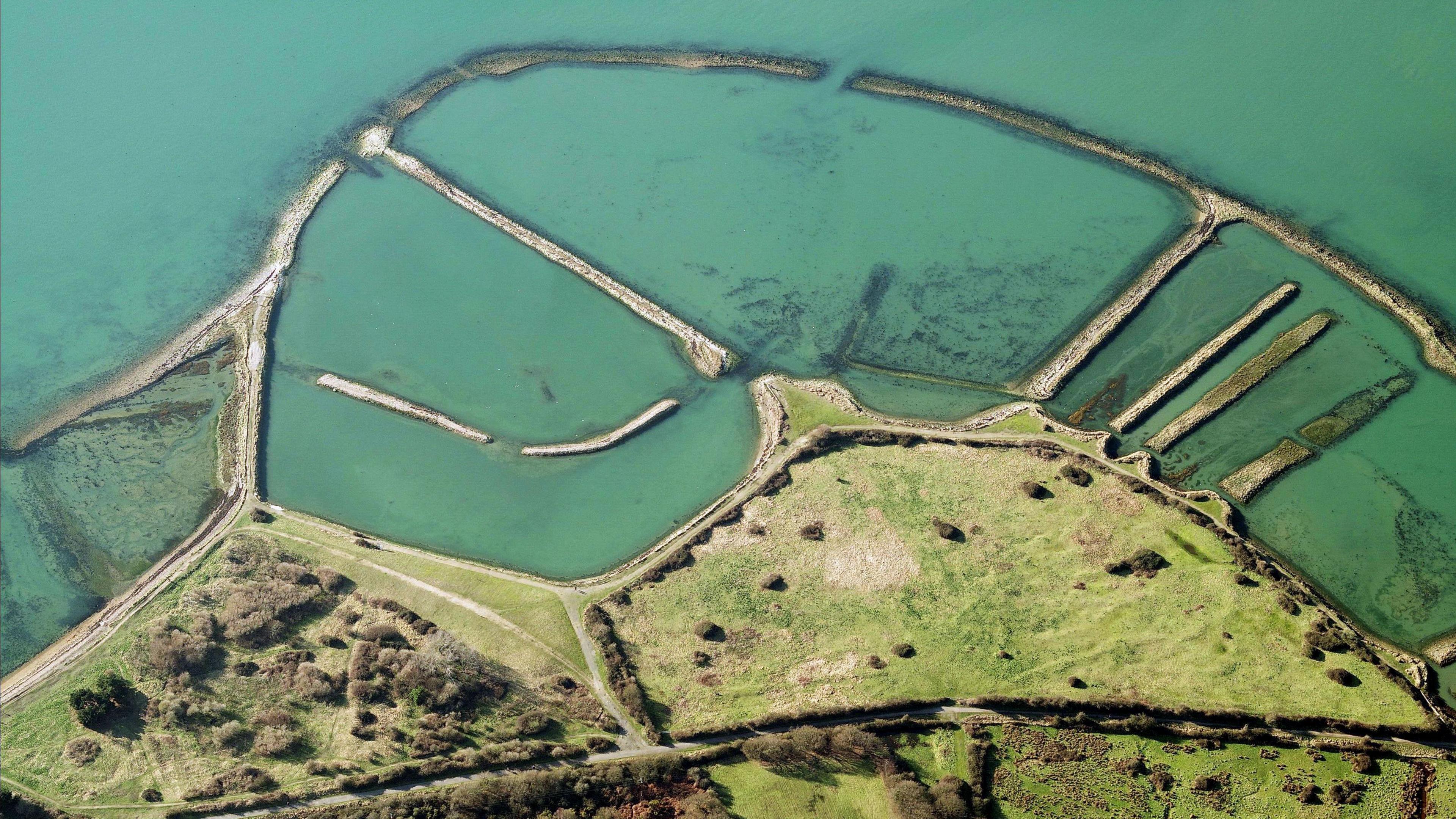
Langstone Harbour is a Site of Special Scientific Interest (SSSI) and a Special Area of Conservation (SAC)
- Published
Sewage spills in a harbour that is home to a colony of seals caused levels of toxins known as "forever chemicals" to rise, researchers have found.
Langstone Harbour, near Havant in Hampshire, was tested for the long-lasting chemicals, which can take centuries to break down.
The highly protected marine area is close to a sewage treatment plant run by Southern Water.
The water company said it worked closely with regulators on all public health and environmental issues.
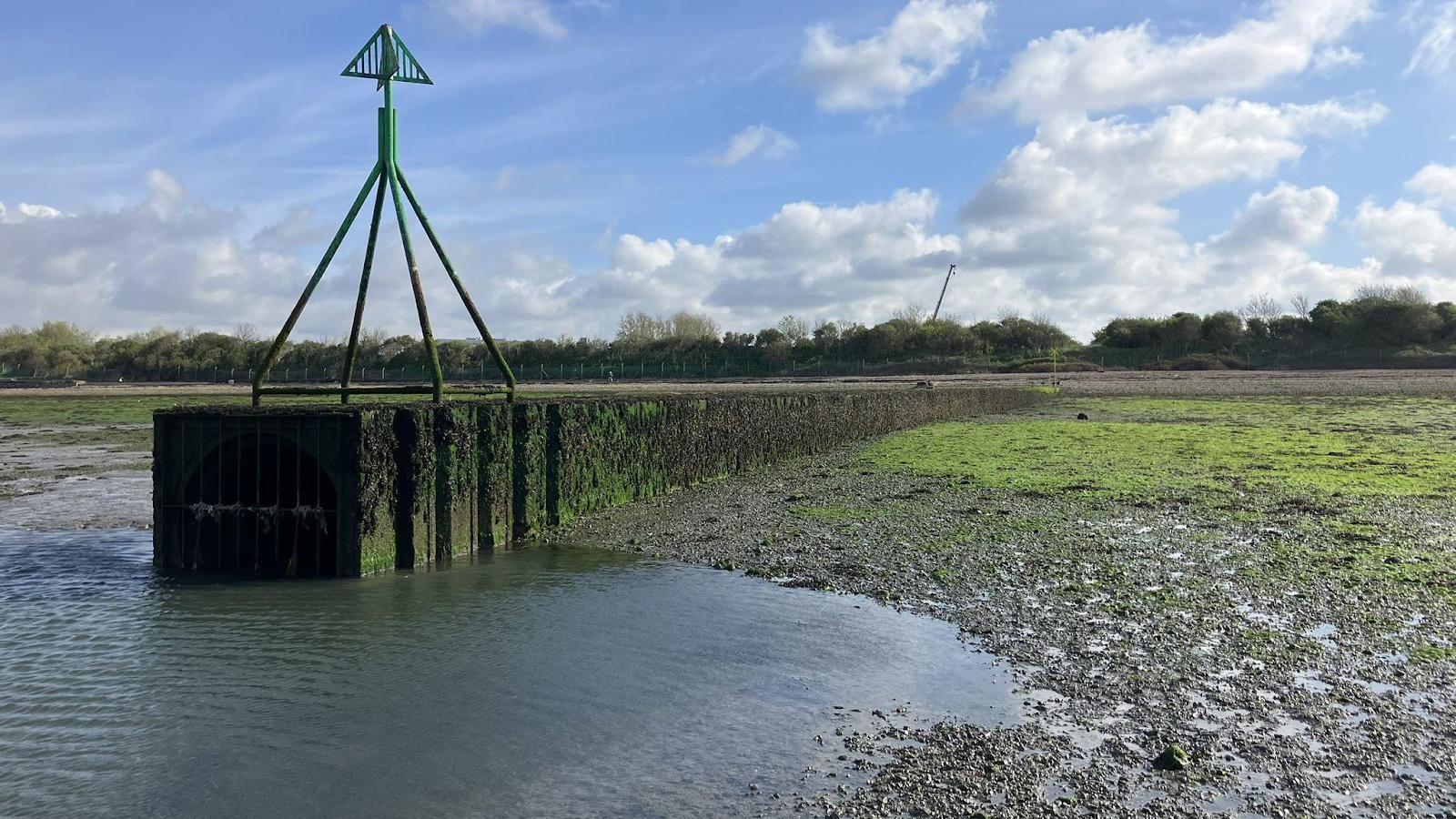
The Southern Water sewage plant in Havant services more than 400,000 people
The study was run by the University of Portsmouth and the Marine Conservation Society (MSC).
Samples of seawater were collected before and after sewage discharges from a storm overflow at Budds Farm.
When it rains heavily, Southern Water can release untreated sewage through storm overflows to prevent sewers from overflowing and flooding roads and homes.
The study found concentrations of man-made chemicals called PFAs increased "significantly" after sewage discharges in the harbour.
What are 'forever chemicals'?
"Forever chemicals", otherwise known as PFAs, were invented in the 1970s and are widely used for their water-resistant properties.
They can be found in everyday products like food packaging and cosmetics.
PFAs enter waterways when items like non-stick frying pans and clothes, some of which are treated with the chemicals, break down.
The toxic chemicals can accumulate in the bodies of humans and animals and have been linked to some health conditions.
Researchers at Oxford Brookes University recently pioneered a possible way to remove forever chemicals from water, external.
They developed a reactor which helps clean the water by creating and popping lots of small bubbles.

Before the discharge into the harbour, one "forever chemical" was detected, compared to eight different ones afterwards
Untreated sewage is already known to contain a cocktail of contaminants such as bacteria, viruses, nutrients, harmful chemicals and microplastics.
But little information is known about the level of PFAs in sewage discharges.
Co-author Dr Francesca Ginley, chemicals policy and advocacy manager at MCS, said this was because there were no requirements for water companies to monitor the level of contaminants found in storm overflows.
"These findings underscore the need for an urgent ban on PFAs from all uses where there are alternatives," she said.
A Southern Water spokesperson said: "Monitoring the health of rivers and seas is led by the Environment Agency.
"We ensure our wastewater treatment works comply - and regularly go above and beyond - any regulations placed on them."
A spokesperson for the Department for the Environment, Food and Rural Affairs (Defra) said it recently announced a review on how best to manage chemicals, including the risks posed by PFAs.
"On water pollution, we are placing water companies under special measures through the Water Bill, which will strengthen regulation including new powers to ban the payment of bonusses for polluting water bosses and bring criminal charges against persistent law breakers,” they added.
Get in touch
Do you have a story BBC Hampshire & Isle of Wight should cover?
You can follow BBC Hampshire & Isle of Wight on Facebook, external, X (Twitter), external, or Instagram, external.
Related topics
- Published7 November 2022
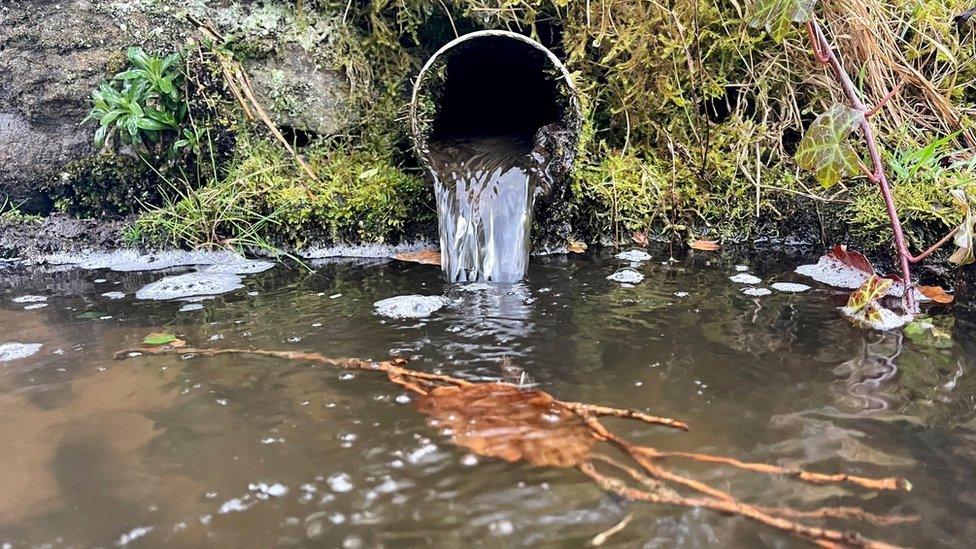
- Published24 May 2023
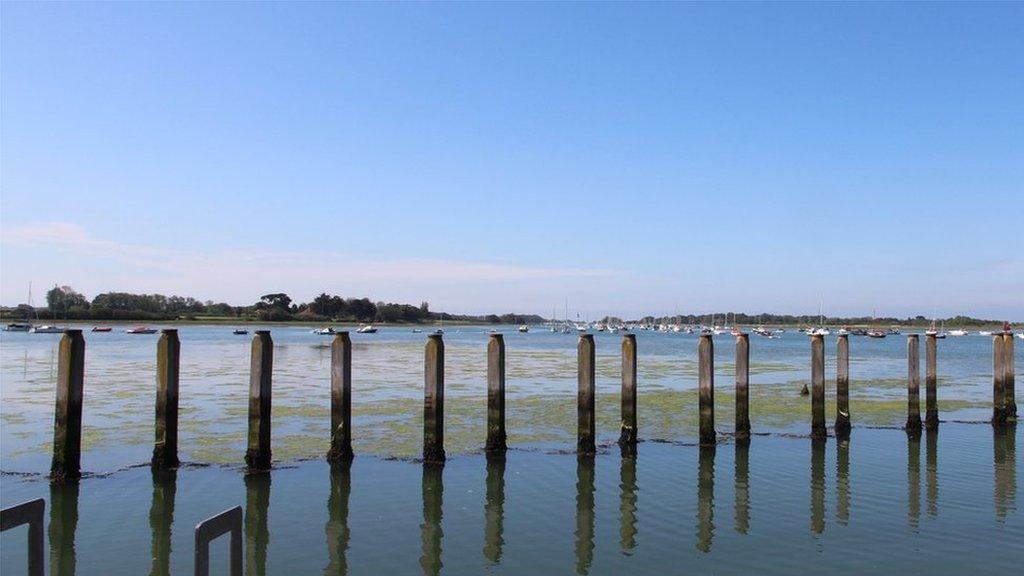
- Published24 March 2023
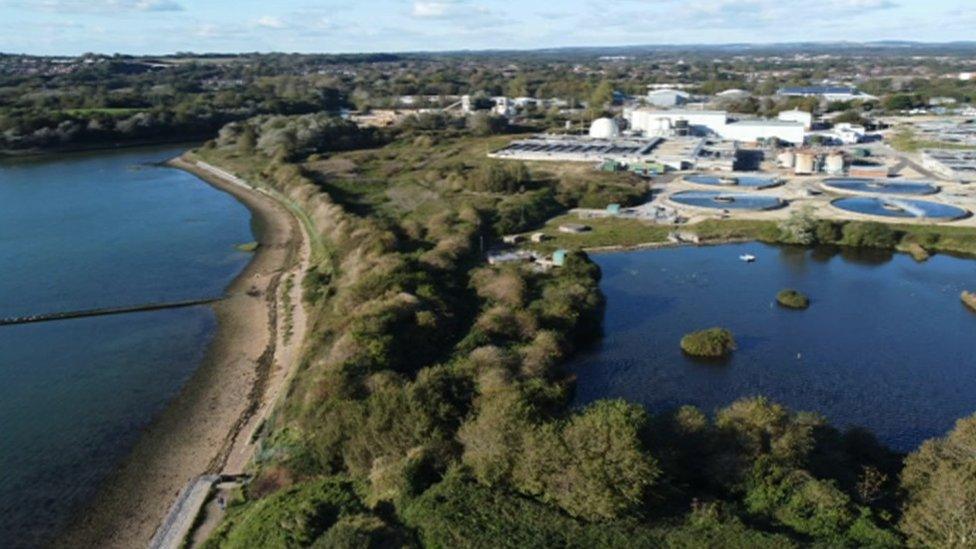
- Published16 February 2023
